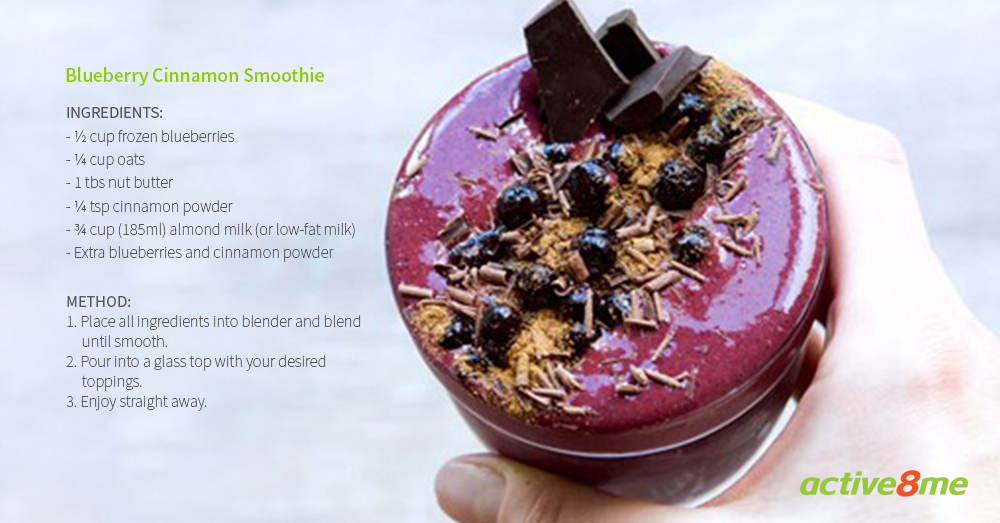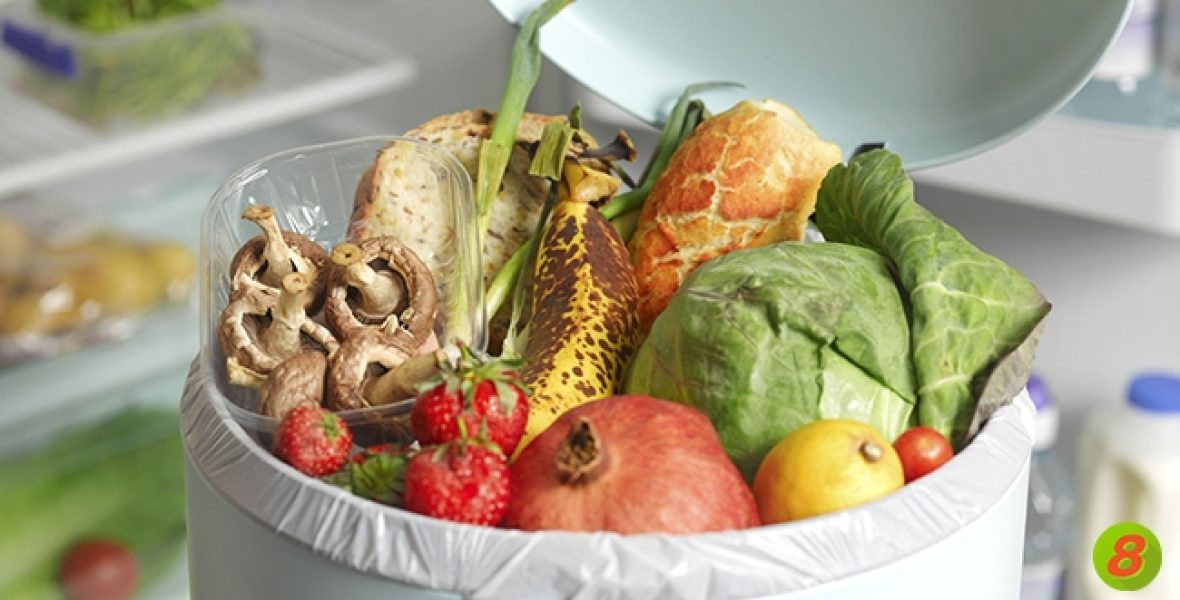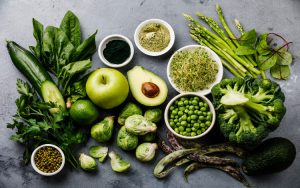Did you know that more than one third of all food produced globally is wasted or spoiled. One-third! At Active8me we’re all about healthy, active living. And for us that also includes looking after our environment as much as looking after our bodies. Part of that is looking at ways to reduce food waste. “Wasted food affects the environment but also our livelihoods and health. Environmentally, it accounts for about 8% of all global greenhouse gas emissions, 24% of the freshwater and 28 million tonnes of pesticides and fertilisers used in agriculture” says the WWF.
So let’s have a look at how to reduce your waste, at the same time as waist! Here’s 7 ways to reduce food waste today:
1.Reduce food waste by shopping smart
Make a shopping list to avoid buying excess food to your needs. Better still, make a meal plan for the week and only purchase necessary ingredients. The Active8me app makes this so easy with the weeks easy, nutritious, calorie-controlled recipes at your fingertips. Your shopping list can be taken straight from the ingredients list. This not only helps reduce waste, it will save you money (those impulsive purchases) and it will save you time too.
2. Reduce food waste by cooking realistic portions
We understand that in many cultures serving large portions is a way of showing your generosity. But, there’s smart ways to still do this without throwing out large amounts of food afterwards. Here’s one idea – serve meals on smaller plates! You can reduce food waste and your calories at the same time. it is no longer necessary. Plus, in this age of go-go-go, sharing your time with family and friends over meals is showing generosity.
3. Reduce food waste by storing it correctly
Not all food needs to be refrigerated! In fact, many fruits and vegetables last longer and taste better when stored at room temperature. Check out the recommendations from heart.org for keeping specific fruits and vegetables fresher for longer.

4. Reduce food waste by using every part of the food
Skins and stems of fruits and vegetables often provide valuable nutrients for our bodies. For example, the skin of an apple contains most of its fibre as well as folate, vitamin E and vitamin K. Don’t miss out on these good nutrients by peeling your apple – a good wash and buff will suffice.
When cooking, whenever possible, use every part of the food you’re cooking with. Try leaving the skin on potatoes and cucumbers or using the broccoli and cauliflower stems as well as the florets (it’s ok, they have just as much flavour and nutrients).
5. Reduce food waste by repurposing your scraps
Lemon, orange or cucumber peel make great additions to still water. Apart from it looking funky, it adds an extra incentive to drink more water! And saving uncooked vegetable scraps (think carrot peel, celery leaves, onion layers, etc) can make scrumptious and nutritious vegetable stock. You can always place them in a freezer bag and add to it until you have enough. There’s 2 quick suggestions on how to repurpose your scraps in a smart way.

6. Reduce food waste by freezing or preserving
If you know you’re not going to be able to empty your fruit bowl before the fruit fly’s start to appear, then simply freeze your fruit and vegetables. Overripe frozen bananas make the best base for a smoothie and leafy greens can be chopped and stored in an air-tight container for later use. If you are handy in the kitchen, you can always give preserving a go. This may be a wonderful way to connect with the elders of your family who are practiced in making delicious pickles, jams and kimchi.
7. Reduce food waste by composting
You don’t need a huge garden, or even a large space to compost. A small compost bin or worm box can easily be placed on a balcony. Have a mini scraps bin on your kitchen bench (with a lid to avoid fruit fly’s) and place your fresh food peels, tea leaves and coffee grounds into it for delivery to your compost. You can fill small pots with the soil produced to grow herbs on your windowsill. It’s a smart and fruitful use of nature’s cycle!
Reduce food waste for your own benefit
Food wastage is a world-wide problem. And it is we individual consumers who are the biggest contributors to this food wastage, with an estimated 20 percent of the food we purchase thrown away. So, it is up to US each individually. And the best news is that being conscious of this will not only save us money and help us eat better … we are being the change we want to see in the world. We’re living active, healthy lives in the most holistic sense. Healthy for us. healthy for the environment! 











